Recent Blog Posts
How Can Passengers Recover Compensation for Michigan Car Crash Injuries?
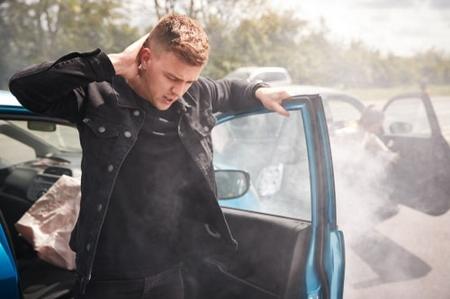 In 2020, passengers accounted for almost 16 percent of car crash fatalities and more than 23 percent of car crash injuries throughout Michigan. Many passenger injuries happen in multi-vehicle accidents, but a large number also happen in single-car accidents, like a crash earlier this month in Grand Rapids in which a driver collided with a pole and two passengers suffered serious injuries. The circumstances surrounding passenger injuries can sometimes make it complicated for victims to recover compensation, but it is possible with the help of an experienced personal injury attorney.
In 2020, passengers accounted for almost 16 percent of car crash fatalities and more than 23 percent of car crash injuries throughout Michigan. Many passenger injuries happen in multi-vehicle accidents, but a large number also happen in single-car accidents, like a crash earlier this month in Grand Rapids in which a driver collided with a pole and two passengers suffered serious injuries. The circumstances surrounding passenger injuries can sometimes make it complicated for victims to recover compensation, but it is possible with the help of an experienced personal injury attorney.
Sources of Compensation for Injured Passengers
In most states, the first source of compensation for car accident injury victims is the at-fault driver’s liability insurance. However, in Michigan, injury victims must first look to compensation through their own no-fault personal injury protection (PIP) insurance, which is required by law in all car insurance policies throughout the state. Though it may seem counterintuitive, the most reliable source of compensation for injured passengers is often their own car insurance coverage, rather than the coverage of any of the drivers involved in the collision.
How Does Shifting Cargo Cause a Michigan Truck Accident?
 It may seem like common sense to assume that most semi-truck accidents are caused by the actions or negligence of the driver while the truck is in transit. Certainly, truck driver negligence is a factor in many accidents, but sometimes, a truck is predisposed to an accident before it even enters the road. One factor that can greatly increase the risk of a truck accident is improperly loaded or secured cargo. If you are injured in an accident and there is evidence that shifting cargo was a factor, you may be entitled to compensation from multiple parties.
It may seem like common sense to assume that most semi-truck accidents are caused by the actions or negligence of the driver while the truck is in transit. Certainly, truck driver negligence is a factor in many accidents, but sometimes, a truck is predisposed to an accident before it even enters the road. One factor that can greatly increase the risk of a truck accident is improperly loaded or secured cargo. If you are injured in an accident and there is evidence that shifting cargo was a factor, you may be entitled to compensation from multiple parties.
The Importance of Securing Semi-Truck Cargo
While federal regulations place an 80,000-pound gross weight limit on commercial semi-trucks and their cargo, Michigan state law actually permits trucks to carry weight of up to 164,000 pounds, provided that the weight is distributed appropriately throughout the truck such that no axle bears a weight of more than 13,000 pounds. This distribution is crucial to ensuring that the truck can be handled safely.
What Happens If My Child is Injured at College?
 For any parent, sending a child to college can be a challenging time filled with mixed emotions. You may be proud of your child’s accomplishments and excited for what they are about to experience, while at the same time feeling sad about your child moving out of the house and nervous about them living on their own. As this new school year begins, many students are about to embark on a fun and rewarding college experience, but unfortunately, for some students, their parents’ worst fears may come true. If your child is injured at college, you should be sure to understand your legal options for handling the situation.
For any parent, sending a child to college can be a challenging time filled with mixed emotions. You may be proud of your child’s accomplishments and excited for what they are about to experience, while at the same time feeling sad about your child moving out of the house and nervous about them living on their own. As this new school year begins, many students are about to embark on a fun and rewarding college experience, but unfortunately, for some students, their parents’ worst fears may come true. If your child is injured at college, you should be sure to understand your legal options for handling the situation.
Alcohol-Related Injuries Among College Students
Many students view college as an opportunity to try things that they were not able to do while living with their parents, and unfortunately, this often includes binge drinking. The first few weeks of college are some of the most dangerous, both because of the many social events where alcohol may be available, and the fact that many students do not fully understand the effects that alcohol will have on their bodies and mental faculties. Students who binge drink, or even those who are around others who are binge drinking, may be at risk of injury in a number of ways, including:
What Should I Do If I Was Injured in a Michigan Bicycle Accident?
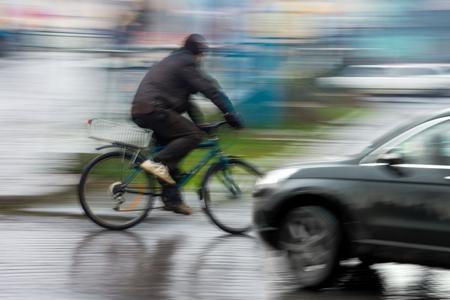 Bicycle accidents have been a cause for concern in Michigan in recent years. Last month, a bicyclist was killed in a collision with a motor vehicle at an intersection on the west side of Grand Rapids. Statewide, bicyclist fatalities nearly doubled from 2019 to 2020, and on average, almost three bicyclists were injured every day last year. If you regularly travel by bicycle, it is important that you are prepared to handle a situation in which you are injured in an accident.
Bicycle accidents have been a cause for concern in Michigan in recent years. Last month, a bicyclist was killed in a collision with a motor vehicle at an intersection on the west side of Grand Rapids. Statewide, bicyclist fatalities nearly doubled from 2019 to 2020, and on average, almost three bicyclists were injured every day last year. If you regularly travel by bicycle, it is important that you are prepared to handle a situation in which you are injured in an accident.
Reasons for Bicycle Accidents in Michigan
Michigan bicyclists are required to obey a number of state traffic laws, including using the right side of the road whenever possible; obeying traffic signs and yielding the right-of-way when appropriate; signaling stops and turns; and equipping their bicycles with functioning brakes, lights, and reflectors. Unfortunately, many bike accidents and injuries happen because a bicyclist fails to follow these laws.
How Common Are Injuries on Carnival and Amusement Park Rides?
 This month, a startling video circulated online of a carnival ride in Traverse City, Michigan that appeared as if it might tip over backward while in motion and fully loaded with riders. Fortunately, a group of courageous bystanders stepped in to balance the ride by hanging onto the front railing, possibly preventing what could have caused catastrophic injuries to those on the ride and the bystanders.
This month, a startling video circulated online of a carnival ride in Traverse City, Michigan that appeared as if it might tip over backward while in motion and fully loaded with riders. Fortunately, a group of courageous bystanders stepped in to balance the ride by hanging onto the front railing, possibly preventing what could have caused catastrophic injuries to those on the ride and the bystanders.
While no one appears to have been injured in this case, the incident has made many people wary of the safety of rides at carnivals and amusement parks throughout Michigan and the United States. You may be wondering just how common amusement park ride injuries are, as well as what you can do if you or a loved one is injured.
Amusement Park Injury Statistics
Common Catastrophic Injuries on Michigan Construction Sites
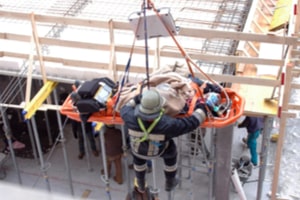 Despite the fact that the federal government regulates health and safety standards on construction sites, accidents resulting in serious injuries are still a regular occurrence. According to the Occupational Safety and Health Administration (OSHA), the construction industry accounts for around 20 percent of work-related fatalities, or around 1,000 per year. A larger number of construction workers suffer catastrophic injuries that they must cope with for the rest of their lives.
Despite the fact that the federal government regulates health and safety standards on construction sites, accidents resulting in serious injuries are still a regular occurrence. According to the Occupational Safety and Health Administration (OSHA), the construction industry accounts for around 20 percent of work-related fatalities, or around 1,000 per year. A larger number of construction workers suffer catastrophic injuries that they must cope with for the rest of their lives.
Life-Altering Construction Injuries
The various hazards on construction sites in Michigan and throughout the U.S. expose workers to the risk of a variety of catastrophic injuries, including:
-
Spinal cord injuries - The most common causes of construction-related spinal cord injuries are falls from ladders, scaffolding, and other elevated areas, as well as accidents involving motor vehicles or heavy equipment. These injuries can cause a loss of sensation and mobility.
Fatal Car Accidents in Michigan Are Increasing

According to a recent report from the Michigan State Police, the number of fatal car crashes so far in 2021 is substantially higher than at this point in 2020, with a 34 percent increase as of May. The number of accidents resulting in serious injuries has also grown significantly, up 27 percent from 2020. Given these troubling trends, it is more important now than ever that you know what to do if you or a loved one has been the victim of a serious accident.
What Is Causing More Fatal Accidents?
Michigan law enforcement officers have offered their thoughts on several possible reasons for the rise of fatal traffic accidents. One factor that is likely at play is an overall increase in vehicle traffic associated with the lifting of COVID-19 restrictions as the number of cases continues to drop and the number of vaccinated people continues to increase. However, there seem to be other contributing factors as well.
The Dangers of Car Accidents Involving Wrong-Way Drivers

After a recent fatal head-on collision on US-131, Grand Rapids residents have been reminded of the dangers that wrong-way drivers pose to others on the road, especially on interstate highways where vehicles are traveling at high speeds. State governments in Michigan and throughout the U.S. have made efforts to address the problem of wrong-way drivers through improved road signage and other, more technologically advanced solutions, but wrong-way highway accidents still account for around 500 deaths each year. If you or a loved one has been injured by a wrong-way driver, you are likely entitled to compensation for your damages.
Why Are Wrong-Way Accidents So Dangerous?
Who is Liable for Electric Scooter Injuries in Grand Rapids?
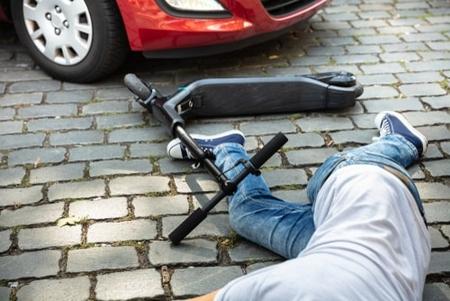 Electric scooters are an increasingly popular means of transportation in the U.S., especially in urban areas and on college campuses where companies like Bird, Lime, and Spin make their scooters available for short-term rental. However, the growing availability of scooters has been accompanied by more injuries, with almost 40,000 riders requiring emergency room treatment between 2014 and 2018. If you are injured in a scooter accident in the Grand Rapids area, it is important to consider your options for covering your medical expenses and other damages.
Electric scooters are an increasingly popular means of transportation in the U.S., especially in urban areas and on college campuses where companies like Bird, Lime, and Spin make their scooters available for short-term rental. However, the growing availability of scooters has been accompanied by more injuries, with almost 40,000 riders requiring emergency room treatment between 2014 and 2018. If you are injured in a scooter accident in the Grand Rapids area, it is important to consider your options for covering your medical expenses and other damages.
Accidents Between Scooters and Motor Vehicles
If, while riding an electric scooter, you are injured in a collision with a car, truck, or other type of motor vehicle, you may have a couple of options for recovering compensation. One option is to file a claim through the no-fault insurance coverage that Michigan law requires for anyone who drives a motor vehicle. An electric scooter is not considered a motor vehicle itself, but scooter riders who have a no-fault insurance policy for another vehicle may still be able to benefit from the coverage. As long as the accident involves a motor vehicle, no-fault personal injury coverage can take effect regardless of who caused the collision.
Could Reeds Lake Developments Lead to More Boating Accidents?
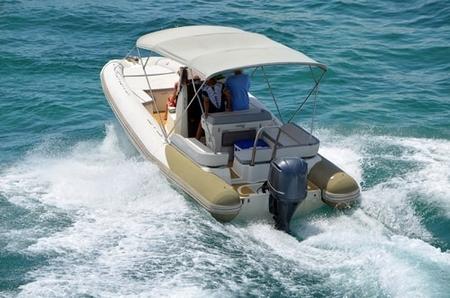 Last month, a proposal came before the East Grand Rapids city planning commission for new developments on Reeds Lake, a longtime popular location for boating and other recreational activities. The plan would bring several changes, among them a public marina with pontoon boat rentals. Supporters claim that these developments will increase access to and enjoyment of the lake, but some residents fear that the ease of renting a boat will lead to an uptick in boating accidents. The impact of the plan, if approved, remains to be seen, but it is nonetheless important for Grand Rapids residents to understand their rights if they are injured in a boat accident.
Last month, a proposal came before the East Grand Rapids city planning commission for new developments on Reeds Lake, a longtime popular location for boating and other recreational activities. The plan would bring several changes, among them a public marina with pontoon boat rentals. Supporters claim that these developments will increase access to and enjoyment of the lake, but some residents fear that the ease of renting a boat will lead to an uptick in boating accidents. The impact of the plan, if approved, remains to be seen, but it is nonetheless important for Grand Rapids residents to understand their rights if they are injured in a boat accident.
Michigan Boat Accident Statistics
According to statistics from the U.S. Coast Guard, there were 128 recreational boating accidents in Michigan in 2019, resulting in 22 fatalities and several more injuries. Though this is a relatively small number, the potential for serious boat accident injuries is certainly present. When these injuries are the result of someone else’s negligence, injury victims and their families are often entitled to compensation through a personal injury claim.








